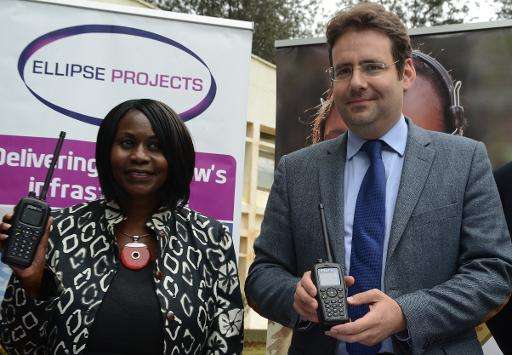Kenya wildlife rangers launch secure radios to outwit poachers

Kenyan wildlife officers launched a secure radio system Wednesday in their battle to protect elephants and rhinos, aiming to outwit poachers who listen in on wardens' communications.
The encrypted radios—purchased from France with a loan of seven million euros (7.9 million dollars)—will be used first in three of Kenya's national parks, replacing old analog systems on which increasingly well-equipped poachers could eavesdrop.
"Patrol teams will be really grateful to have this technology which will assist them in ensuring there is proper security," said William Kiprono, who heads the government's Kenya Wildlife Service (KWS).
Elephants and rhinos are under siege in Africa, their poaching driven by demand from Asia.
Rangers patrol parks as though at war: dressed in camouflage uniforms and carrying assault rifles, while in some private reserves, wardens have night vision goggles and thermal imaging devices.
Rampant poaching in Kenya, which is home to an estimated 30,000 elephants and just over a thousand rhinos, has sparked warnings from conservation groups that the government is losing the fight against the slaughter.
"This will strengthen the fight against poaching," said Olivier Picard, head of Ellipse Projects, the French company selling the radio equipment.
The United Nations estimates that up to 30,000 elephants are killed in Africa every year out of a total population of not more than half a million.
Modernising the system will help "not only to protect biodiversity but also improve security of wardens and tourists", said French trade and tourism minister Matthias Fekl.
Rhino horn—the same substance as finger nails—is estimated to be worth twice as much as gold at $65,000 (57,000 euros) per kilogramme on the black market in Asia, where it is believed by some to cure cancer and have medicinal powers.
Ivory is sought out for jewellery and decorative objects and much of it is smuggled to China, where increasingly wealthy shoppers are buying ivory trinkets as a sign of financial success.
© 2015 AFP




















